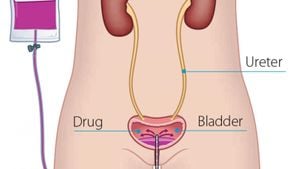The shifting geopolitical climate has seen Poland bolster its international relations, particularly with the Baltic states, Germany, and Norway. Notably, recent developments reflect Poland's focus on regional cooperation, security, and cultural recognition.
On February 8, 2025, the Baltic states—Estonia, Latvia, and Lithuania—officially severed their longstanding ties with Russia by disconnecting from the Russian-controlled Brell network. This historic move saw them successfully synchronize with the European Union's electricity grid through Poland, marking a significant step toward energy independence. Polish Prime Minister Donald Tusk highlighted the importance of this integration, indicating plans to invest more than €155 billion (650 billion zloty) across various energy projects within Poland starting from 2025. This commitment promises to position Poland as not just a key energy provider, but also as a central logistics hub for the region.
Meanwhile, on February 14, during the prestigious Munich Security Conference, Professor Rita Süssmuth will receive the Polish-German Prize. This accolade is awarded for outstanding contributions to strengthening Polish-German relations, which has been particularly significant post-World War II. The Prize Committee praised Süssmuth for her unwavering commitment to reconciliation and cooperation between the two nations. “Rita Süssmuth serves as an example of Polish-German reconciliation and cooperation,” stated Małgorzata Ławrowska-von Thadden, co-chair of the Prize Committee. The award ceremony signifies not just recognition of her efforts, but also embodies the spirit of unity and collaboration within the European framework.
Further reinforcing these ties, Polish Defence Minister Kosiniak-Kamysz announced on February 10, 2025, the extension of military cooperation with Norway. During his meeting with Norwegian Defence Minister Tore Sandvik at the 31st Tactical Air Base, the two nations discussed an action plan focusing on consolidations of military expertise and security. “Poland has tremendous responsibility in facilitating the delivery of humanitarian and military aid to Ukraine,” emphasized Sandvik, underlining Poland's strategic position within NATO and its role as a facilitator for international support. The visit marked Sandvik’s official engagement since assuming his role just days prior, reflecting the urgency and importance of these discussions.
Poland's role as a logistics hub during the Ukraine crisis was also emphasized. Kosiniak-Kamysz pointed out the strategic deployment of Norwegian F-35 aircraft over Polish airspace, alongside missile defence systems assisting at Jasionka airport near Rzeszow, central to Western military logistics. This collaboration not only enhances Poland’s military capacities but also reinforces Norway’s commitment to collective security efforts within the region.
On another front, cultural recognition was marked by Professor Norman Davies being honored with honorary citizenship of Gdynia on February 10. Celebrated as “an ambassador of Polish history,” Davies' contributions span over 20 published works, with significant translations and acknowledgments worldwide. His achievements reflect the long-standing ties between Poland and its diaspora, emphasizing both cultural exchange and historical remembrance. “I promise to be a faithful and happy citizen of this famous city,” Davies remarked, underlining his deep connections to Gdynia.
Through these developments, Poland showcases its commitment to fostering tighter international connections, enhancing its role as a regional leader, and acknowledging cultural contributions. One can only hope this newfound momentum continues to thrive as Poland navigates the complex geopolitical dynamics of today.



